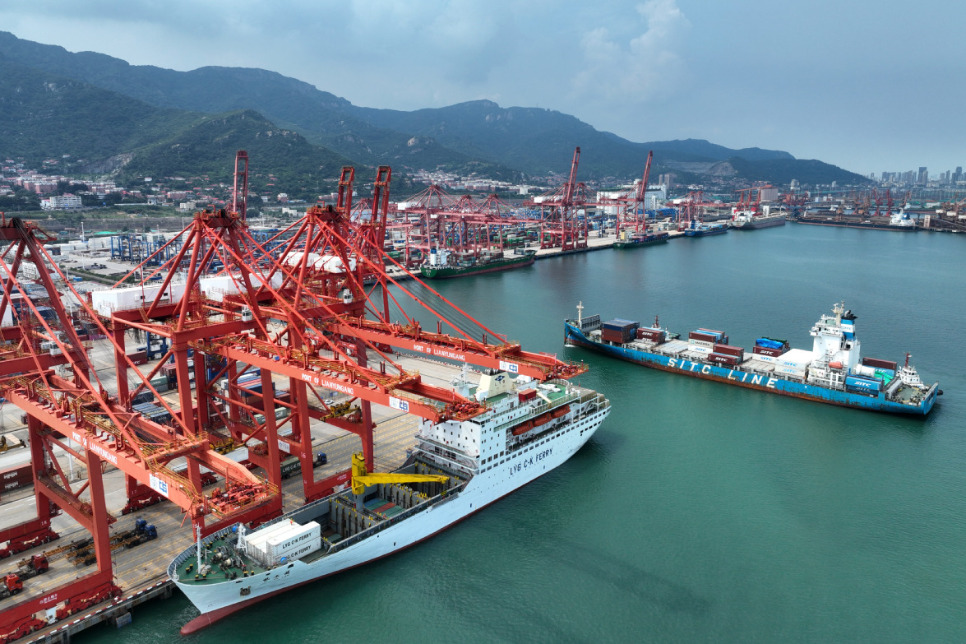China a major fund provider for Global South climate action


Global climate goals can't be reached unless developing countries are able to transition to a low-carbon, climate-resilient economy. However, not all of them can make it there on their own. The poorest and most vulnerable developing countries — which are not historically responsible for planet-warming emissions — do not have the resources to invest in green energy or adapt to climate impacts. They require and deserve help from the international community.
One of the main agenda items at the 29th Conference of the Parties to United Nations Framework Convention on Climate Change (COP29), in Baku, Azerbaijan, last month, was to set a new global climate finance target. This new collective quantified goal (NCQG), will replace the goal set in 2009 for developed countries to mobilize $100 billion a year, from 2020 to 2025, for climate action in developing countries. The COP29 outcome calls on all actors to scale up finance to $1.3 trillion, while setting a new climate finance goal of at least $300 billion with developed countries taking the lead.
Developing countries are urged to contribute to this mobilization on a voluntary basis. And many emerging economies, including China, are already providing and mobilizing a significant amount of climate finance. This September, my World Resources Institute co-authors and I published a paper tallying the climate finance China has provided and mobilized for supporting other developing countries' climate actions. Adopting the most common climate finance accounting methodology, our research presents one of the first analyses to allow face-value comparisons of climate finance mobilized by the largest developing country and developed countries. We estimated that China's climate finance provision averaged close to $4.5 billion per year between 2013 and 2022.
At COP29, Chinese Vice-Premier Ding Xuexiang reported that between 2016 and 2023, China supported other developing countries with roughly $24.5 billion in total climate-related funding. Our numbers are different from those reported by the vice-premier primarily because we counted multilateral finance in addition to project finance, which is channeled through bilateral mechanism.
According to our estimate, China's contribution equals to about 6 percent of the total climate finance developed countries provided during the same period. This would put China's climate finance behind only the United States, Japan, Germany and France. However, the quality of finance matters as well. A quarter of China's finance comes as export credits, driven by a large number of infrastructure projects which can lead to climate and other sustainability benefits. However, there is on-going debate on whether and how the OECD methodology should include export credits and other less concessional finance.
One way China could further contribute to climate action is by improving the quality of its climate finance reporting. While it is not obligated to report under the UNFCCC, doing so would show good faith engagement with the multilateral process.
An approach modeled on the coordination used to submit the biennial transparency reports to the UNFCCC could help observers as well as administrators understand China's climate finance better. Greater transparency would provide a model for other contributors to report their finance more clearly and comprehensively — and perhaps motivate them to increase their finance, too.
The other way China can show leadership would be to increase its finance support under South-South cooperation which the new agreement reached in Baku encourages. China has an opportunity to double down on the benefits that climate finance brings.
While developed countries must lead in providing climate finance, all countries have a shared interest in ensuring developing nations — and the world — achieve an inclusive, low-carbon, climate-resilient future. In addition, we should also consider imposing taxes on high-emitting activities, redirecting fossil fuel subsidies and other ideas. But cracking the code of how emerging economies, including China, contribute in their own way could play a more important role in achieving this shared outcome.
The author is China finance director of Global Climate, Economics and Finance program, World Resources Institute. The views don't necessarily reflect those of China Daily.
If you have a specific expertise, or would like to share your thought about our stories, then send us your writings at opinion@chinadaily.com.cn, and comment@chinadaily.com.cn.


































